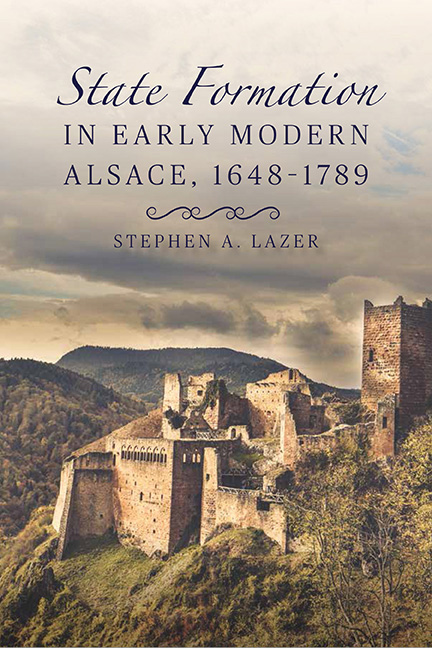Book contents
Summary
The night of August 4, 1789, changed everything for the German princes with Alsatian territories, including the Dukes of Pfalz-Zweibrücken. One night transformed their Alsatian domains into nothing more than private property. But this was only the proverbial final straw in a series of assaults on their position that had begun in 1787. The imperial lords resisted the reforms that preceded and occurred within the context of the French Revolution. They insisted that neither the Provincial Assembly nor its municipal reforms had any validity. They protested, of course, in the “strictly legal form” to which they were long accustomed, formulating their grievances as violations of their territorial superiority and the formal agreements they had reached with the monarchy since the second half of the seventeenth century. Duke Karl II August of Pfalz-Zweibrücken's protest included, among other documents, “a 16-page complaint decrying the violation of various treaties” and a more specific objection to the National Assembly's installation of judges in Lützelstein, which directly contradicted the jurisdictional rights he and his predecessors had long enjoyed. The German princes astutely pointed out that the May 1788 edicts, which aimed to revamp judicial institutions throughout France, came only two months after Louis XVI had ordered the Sovereign Council to uphold Pfalz-Zweibrücken's rights in Kleeburg; could this really be the king's intent?
Unfortunately for the princes, they were not well-placed to resist once support from Versailles was no longer forthcoming. So they turned once more to the empire for help, particularly after the events of August 4, 1789. Pfalz-Zweibrücken's longstanding alliance with France prevented it from acting as immediately or as vigorously as some other princes like the bishop of Strasbourg were able to do; the duke simply depended too much on French subsidies. Duke Karl II August followed another route; he was one of the few imperial princes with Alsatian holdings who approached the French government for compensation. The duke did, however, join with his fellow rulers in turning to the Reichstag. In particular, in 1790, they pressed Leopold II to write to Louis XVI, asking him to undo the offensive actions of the National Assembly. This move proved historically fateful. The princes’ appeals to the emperor and the imperial diet raised tensions with the revolutionary government and thus helped trigger the first wars it waged against the “enemies” on its borders.
- Type
- Chapter
- Information
- State Formation in Early Modern Alsace, 1648–1789 , pp. 177 - 182Publisher: Boydell & BrewerPrint publication year: 2019



